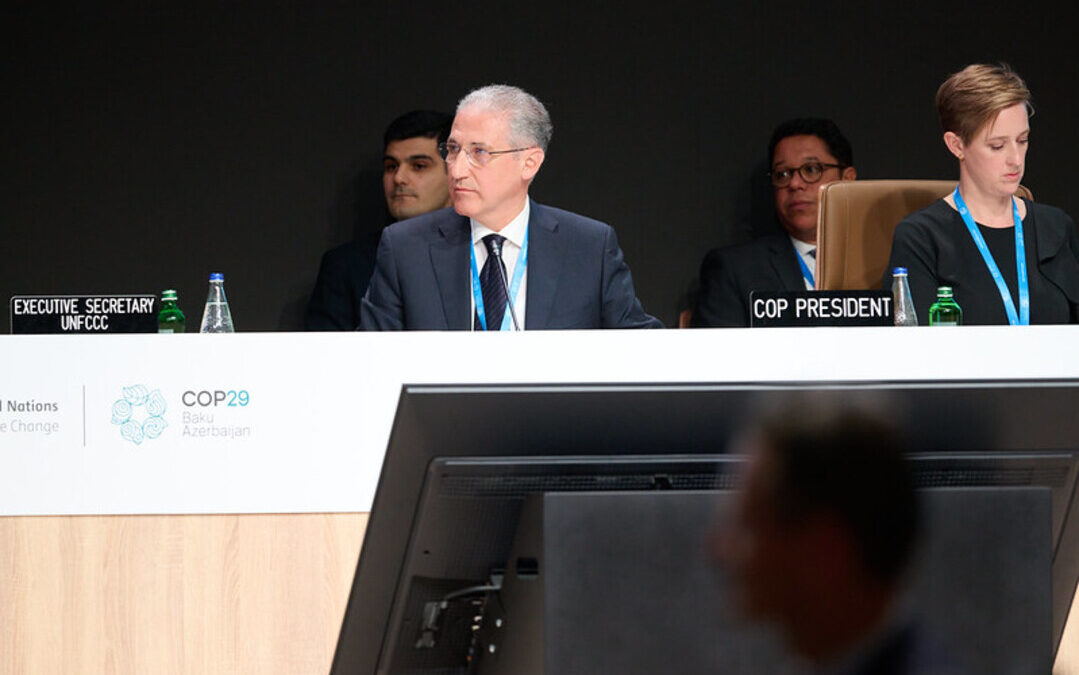COP29 Spurs $170bn Climate Finance Pledge for Developing Nations
MDBs pledge $170bn annually for climate action as world leaders gather at COP29 to address adaptation, mitigation, and finance gaps.
At COP29, an ambitious $170 billion in annual climate financing was announced by a coalition of multilateral development banks MDBs, aiming to support low- and middle-income countries in addressing climate change impacts.
This declaration marked the close of the first day of the World Leaders Climate Action Summit, a high-profile event attended by 80 heads of state and government officials worldwide.
The MDBs, including the World Bank, African Development Bank, and the Asian Development Bank, projected their annual contributions to reach $120 billion by 2030 for lower-income nations, including $42 billion for adaptation.
High-income countries are set to receive $50 billion annually, with $7 billion allocated for adaptation, as MDBs seek to mobilize an additional $65 billion from private sector sources. This unprecedented commitment highlights a 25 percent increase in direct climate finance since 2019.
Closing the Finance Gap
During the summit’s opening, COP29 President Mukhtar Babayev emphasized the pressing need for sufficient climate financing, saying, “Every contribution is welcome, but there is still a clear gap between where we are and where we need to be.”
He stressed the summit’s role in securing ambitious financing arrangements, which will be critical in achieving the global climate goals established under the Paris Agreement.
COP29 advanced efforts on the Loss and Damage Fund to address loss and damage due to climate change. After securing agreements with the World Bank and the Philippines as the host country, the fund is poised to disburse resources by 2025.
The COP29 presidency expressed gratitude to Sweden for its recent $19 million pledge, bringing total contributions to over $720 million.
Global Leaders Address Climate Priorities
The summit opened with an address from Azerbaijan’s President Ilham Aliyev, who highlighted the significance of bridging gaps between developed and developing countries.
Notable speakers included UN Secretary-General António Guterres, Prime Minister Mia Amor Mottley of Barbados, and Sir Keir Starmer of the United Kingdom, underscoring the urgency of implementing mitigation and adaptation strategies.
In parallel, the US, China, and Azerbaijan convened a summit to accelerate methane emissions reduction, reaffirming the goal to keep global warming below 1.5 degrees Celsius. This collaborative effort is part of a broader initiative to reduce non-CO₂ greenhouse gases.
Supporting Agriculture and Energy Transitions
On the agricultural front, COP29 featured a new partnership between Azerbaijan and the UN’s Food and Agriculture Organization, introducing the Baku Harmoniya Climate Initiative. This project focuses on equipping farmers with resources to cope with climate impacts on agriculture and water security. Further, the International Energy Agency presented a leader segment highlighting progress on energy targets critical to the COP29 agenda.
As the summit progresses, world leaders are expected to continue shaping initiatives to accelerate climate resilience, ensuring that the international community delivers on the promises of COP29.


